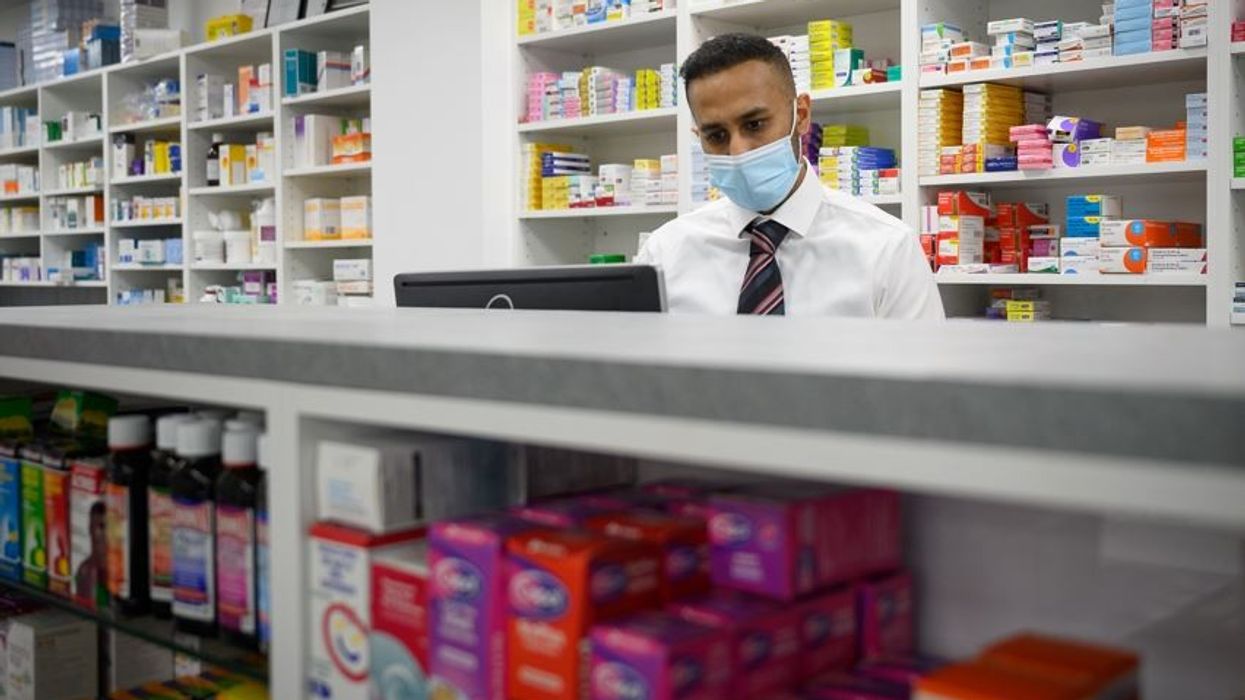PHARMACIES across the country are shutting for good due to staff shortages and a lack of investment, industry leaders have warned.
More than 200 chemists closed last year with many more slashing their hours, leaving it harder for patients to access medicines.
In England during 2020-21 there were 11,600 community pharmacies, according to the NHS Business Services Authority. While 236 new ones opened, 451 closed, leaving numbers at their lowest levels since 2015-16.
Experts have warned staff are leaving to join the NHS due to better pay, the pension scheme and fewer out-of-hours work at a time when they are stretched due to more people wanting Covid booster jabs and flu vaccines.
Atul Patel, director at Mildcare Ltd who runs Lincoln Pharmacy in London, told Eastern Eye: "There has been a lack of investment, a complete freeze for 5-6 years by the government.
"They have taken away the practice allowance to help.
"There is a lack of staff, many are deciding there is not much of a future there, a lack of commissioning of services for a highly skilled team.
"GP rates are paid, ours is going up, there is no investment. Why is there a surprise that they are closing, the trend will continue."
During the pandemic, more than 1,500 community pharmacy-led Covid vaccination sites were set up, delivering 15 million vaccinations so far, the government said. And 3.8 million flu vaccines have been delivered through community chemists.
Patel added: "Pharmacies have worked hard during the pandemic. I've had family come in help, we are doing long hours but morale is getting low.
"We need workforce help."
The staffing crisis could get worse as the NHS has said it wants to recruit 6,000 pharmacists into its primary care services by 2024 with 3,000 of those already in place. Many of those will come from community pharmacies.
It takes five years to qualify as a pharmacist. Chemists must have a qualified professional on-site in order to supply prescriptions or offer services such as flu jabs, leading to some working across different sites.
Dr Mahendra Patel, honorary visiting professor of pharmacy at the University of Bradford, told Eastern Eye: "My concern is closing down pharmacies in the heart of villages which exacerbates health inequalities which we have had a light shone on through Covid-19.
"These are services we have become accustomed to, we trust, have built a relationship with.
"Families within that, particularly Asian families working with generations of people giving advice on healthcare issues, medication, minor ailments, lifestyle measures like type 2 diabetes and cardiovascular problems.
"They help break through language barriers, understand cultural and religious practices, they are unsung heroes."
"Covid-19 has ripped through the workforce from people falling ill and added to the workforce pressure issues - they are really at breaking point."
Among the businesses affected was The Lloyds Pharmacy in Reading, Berkshire, which was closed for four days in November due to staff shortages.
A spokesperson for the National Pharmacy Association said: “We are currently facing a critical shortage of pharmacists in the community pharmacy sector, which has resulted in temporary closures.
"The situation is not helped by the NHS subsidising pharmacist roles in general practice, which makes it harder to recruit and retain in high street pharmacies.
“We’re in talks with the NHS about the pipeline for the long term and also the skills and distribution of the current workforce.
“Unfortunately, chronic underfunding of community pharmacy services over many years means that we have seen permanent closures too. Pharmacy closures means less capacity at a time when healthcare needs are growing and community-based provision needs to step up a gear.”
Nearly three-quarters of family-owned pharmacies in England could be forced to shut their doors over the next few years, according to a report by consultancy firm Ernst and Young in 2020.
The study found that pharmacies are under-funded by £497 million with 72 per cent forecast to be loss-making by 2024. And the average pharmacy will be making an annual loss of £43,000 by 2024.
A Department of Health and Social Care spokesman said: “We are monitoring the impact of the recruitment of pharmacists into primary care networks and continue to work with the sector to ensure the best outcome for patients.”
In a Parliamentary debate on community pharmacies on November 23, primary care minister Maria Caulfield told MPs: "The community pharmacy contractual framework outlines a transformational programme of work to integrate community pharmacies into the NHS, delivering more clinical services and making them the first port of call for many minor illnesses.
"The framework commits £2.5 billion annually to the sector to support that ambition."
Caulfield added MPs will "find no greater supporters of community pharmacists than this government."
"That is why we launched the community pharmacist consultation service, where GPs and NHS 111 can refer patients directly to pharmacy services."
Forced to shut after 97 years
A community pharmacy in Bolton, Greater Manchester, closed its doors last year after nearly a century of trading. Lees Pharmacy was run by Chimin Patel who said it shut due to funding cuts.
Patel said: "It has been a very challenging climate for all pharmacies in England and for Lee's Pharmacy this has become financially unviable.
"It is very sad to close it down after 97 years of being a community pharmacy at that site, all due to pharmacy funding cuts."




